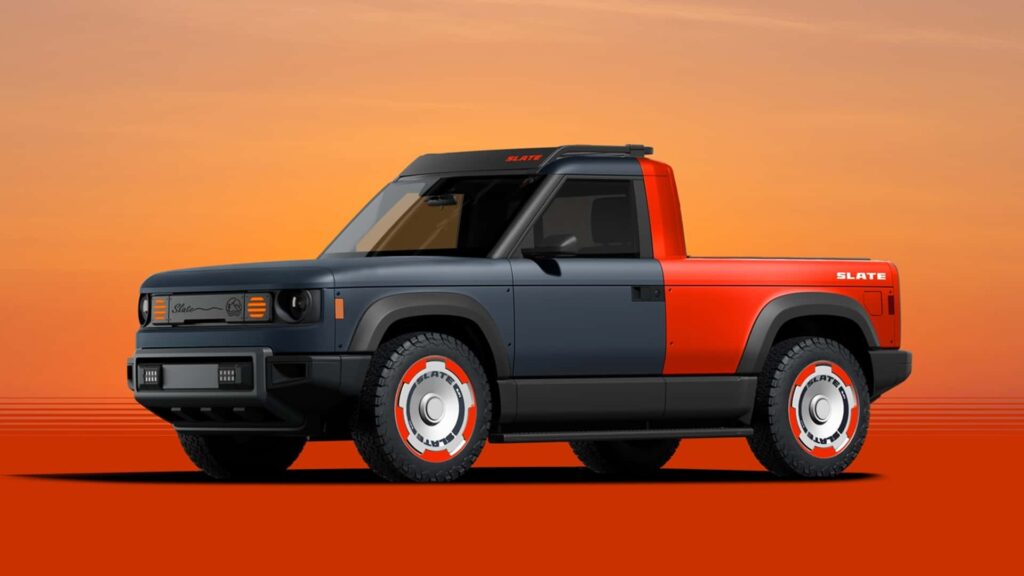Slate made waves this week with the unveiling of its first model, a budget-friendly electric pickup truck set to hit the market at under $20,000 after factoring in the federal tax credit for electric vehicles. This announcement comes at a time when affordable electric vehicles have been hard to come by, largely due to the historically high cost of EV batteries.
The decision to use nickel-manganese-cobalt (NMC) batteries over lithium-iron-phosphate (LFP) cells may seem counterintuitive, given the lower cost of LFP cells. However, Slate CEO Chris Barman explained that sourcing LFP materials from China would have posed challenges in meeting the requirements for the EV tax credit. By opting for NMC batteries, Slate aims to align with the mainstream battery chemistry used in the U.S. and avoid potential obstacles in the supply chain.
The key selling point of Slate’s electric truck is its affordability, especially with the $7,500 federal rebate for EV buyers. To qualify for this incentive, vehicles must be produced in North America, a requirement that Slate plans to meet with a new factory in the Midwest. Additionally, the battery pack must comply with regulations on sourcing components and raw materials, with strict guidelines set to be enforced in the coming years.
Despite the uncertainties surrounding the future of the EV tax credit, Slate has secured a partnership with South Korean battery manufacturer SK On to supply NMC cells for its vehicles. This strategic move ensures a steady supply of batteries with superior energy density, essential for maximizing the range of Slate’s electric truck.
While LFP batteries offer advantages like durability and fast-charging capabilities, Slate prioritized energy density and availability in the U.S. when selecting NMC cells for its vehicles. This decision reflects the company’s commitment to meeting the evolving requirements of the EV market and positioning itself for success in the rapidly changing landscape of electric vehicles.
In conclusion, Slate’s choice of battery chemistry and supply chain strategy underscores its dedication to delivering an affordable and competitive electric vehicle option to consumers. By navigating the complex regulatory landscape and aligning with domestic manufacturing standards, Slate aims to carve out a niche in the EV market and establish itself as a key player in the transition to sustainable transportation.

